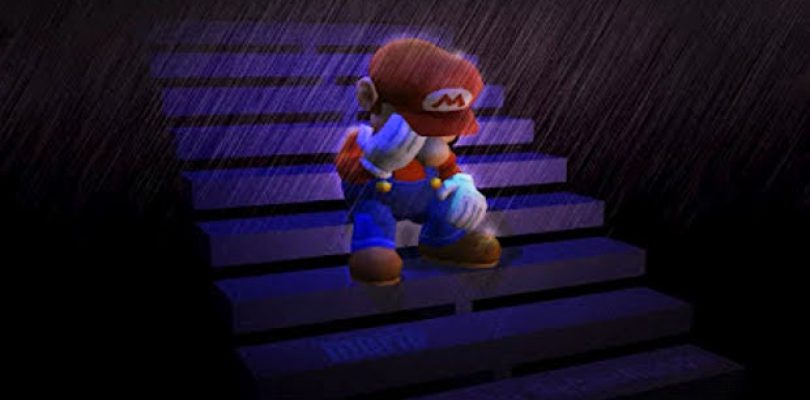If you frequent the news and happen to be a gamer, you may have heard that this week the World Health Organisation, also known as W.H.O., has labeled excessive gaming as a mental disorder. That’s right, gaming mental disorder is now a thing.
Gaming is the latest in a long line of popular new forms of mass-entertainment, akin to movies, television, and even books, which have had to stand the accusations that their medium is somehow detrimental to the health and well-being of our society at large. In today’s day and age, amidst a sea of growing concern and worry over the state of the world, gaming seems to have once again been singled out as the scapegoat to avoid talking about the real issues. Rather than having a serious discussion on gun reform or mental health awareness, or our seeming decline of social awareness brought about by the tech boom, we’ve decided to once again make the oh-so-compelling argument that video games cause harm. This gaming mental disorder argument is nothing new, but for gamers, it stings none-the-less.
Specifically, in making this proclamation, the WHO refers to anyone who spends more than 20 hours a week playing video games as suffering from this gaming mental disorder.
Not everyone agrees with this ruling, however, with a number of mental health experts speaking out against the idea that gaming is, in and of itself, a disorder. After all, there are many gamers who spend long periods of time playing games without being negatively effected, or suffering from a gaming mental disorder.
The DSM-IV defines a mental disorder as “A clinically significant behavioral or psychological syndrome or pattern that occurs in an individual and that is associated with present distress (e.g., a painful symptom) or disability (i.e., impairment in one or more important areas of functioning) or with a significantly increased risk of suffering death, pain, disability, or an important loss of freedom”
It goes on to say “Whatever its original cause, it must currently be considered a manifestation of a behavioral, psychological, or biological dysfunction in the individual. Neither deviant behavior (e.g., political, religious, or sexual) nor conflicts that are primarily between the individual and society are mental disorders unless the deviance or conflict is a symptom of a dysfunction in the individual, as described above.”
Essentially, a disorder is a repeating behaviour pattern that causes a lower quality of life for the individual. A Gaming mental disorder would have to negatively impact a person’s life.
This is an issue that hits home for me in a lot of ways. Both of my parents worked closely in mental health for their entire adult lives. I’m an avid, die-hard gamer. It’s never effected me negatively, and in fact, I attribute a number of my positive traits to my gaming hobby. And finally, I DO suffer from a real disorder, Obsessive Compulsive Disorder.
OCD is a real disorder. It’s hard to explain to someone who doesn’t have it, but it changes your natural instincts about your actions, and as a stress disorder, it tends to manifest itself when you’re at your most vulnerable. For example, in high school, I had gotten into the routine of needing to clean my glasses thoroughly, ever night before bed. A nagging thought in the back of my mind told me that if I didn’t, the natural consequence was that I would wake up blind in the morning.
Now, obviously, I’m not clinically insane. I didn’t REALLY think I would go blind. But OCD gives you just enough stress and self doubt to make doing the action easier than avoiding it. And so, for months, I faithfully polished those glasses every night, until I finally said enough is enough and broke the cycle.
My OCD is a disorder. I suffer from a very mild form of the disorder, and I’ve been able to conquer it and learned how to manage my stress, so I now almost never suffer from any form of it, save for the occasional stress of a big, life changing occurrence. But it was and is a disorder. It kept me up at night. It caused me to ruin tests by chronically erasing marks on my paper. It negatively impacted my life.
I’m not a mental health expert, obviously, but I’ve learned a lot growing up in the environment I did. There are certainly people who suffer from legitimate disorders, and use gaming as a negative coping mechanism. Social recluses, who spend all day inside playing games for fear of interacting with the outside world, for example. But in these instances, gaming is a SYMPTOM of a disorder, not the disorder itself.
My situation is unique to myself, and categorizing someone who does too much of a single thing as suffering from a mental disorder is a dangerous and wildly unprofessional assumption to make. Between the time I spent playing games with friends, both in person and online, mixed with the time I spent gaming as background noise during evening TV sessions with the family and those few hours a week of serious, focused gaming sessions, I’m sure I put in more than 20 hours of gaming a week. But did any of that time spent negatively impact me in any way? Of course not. Am I dependent on gaming, is it keeping me from living my life? Absolutely not.
If you spend so much time gaming that you’re starting to regret it or it’s negatively effecting your life, maybe you ARE suffering from an addiction. It’s possible there’s something deeper going on, and you should absolutely seek help. But I would argue the majority of people who identify as “gamers”, who list gaming as a primary hobby, just play games to have fun. They still have lives, they’re still successful, and yes, they’re still happy.
Gaming is a hobby for me, and a passion. Game design is my life’s ambition, and it’s largely because of gaming that I’m able to be a part of Infendo. Gaming has unequivocally made my life better, as I know it has for a great many other people. Just because someone choosing to spend the majority of their free time engaging in their hobby doesn’t make them mentally ill. They aren’t suffering from a disorder, they’re just living their lives.


